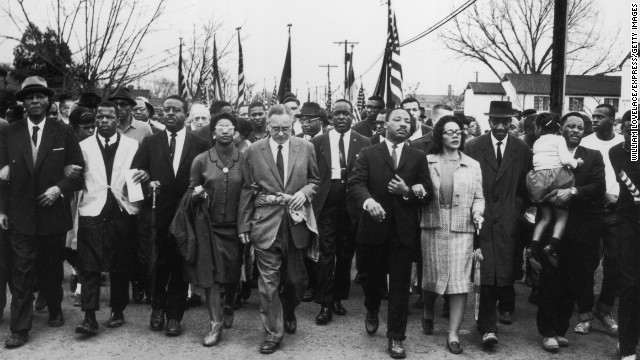The story of African-Americans standing up and fighting for the basic rights that this country stands for is an important one. Portraying it purely as a story of black against white is both dishonest and detrimental. It's a story of an America that is and has been completely divided along racial lines, and it's not true. Remembering that there were a lot of white people who stood up and supported the African-American protesters of the 1950s and 1960s, marched alongside them and took those same risks, some of them dying for that cause, that is a story of an America that is bigger than racial difference, that is based on shared values and a common belief in the promises of life, liberty and the pursuit of happiness for all people. It is a hopeful story, and it is true.
In all the recent publicity, I haven't seen one public image MLK during the Selma to Montgomery march that wasn't cropped to cut out the white participants. These are the images I wanted to see, but didn't:



And then there's this guy:

There's nothing wrong with a community celebrating their own successes. But when they make the exclusion of the allies who helped them win their battles intrinsic to the narrative of those successes, they are practicing nothistory.
No comments:
Post a Comment